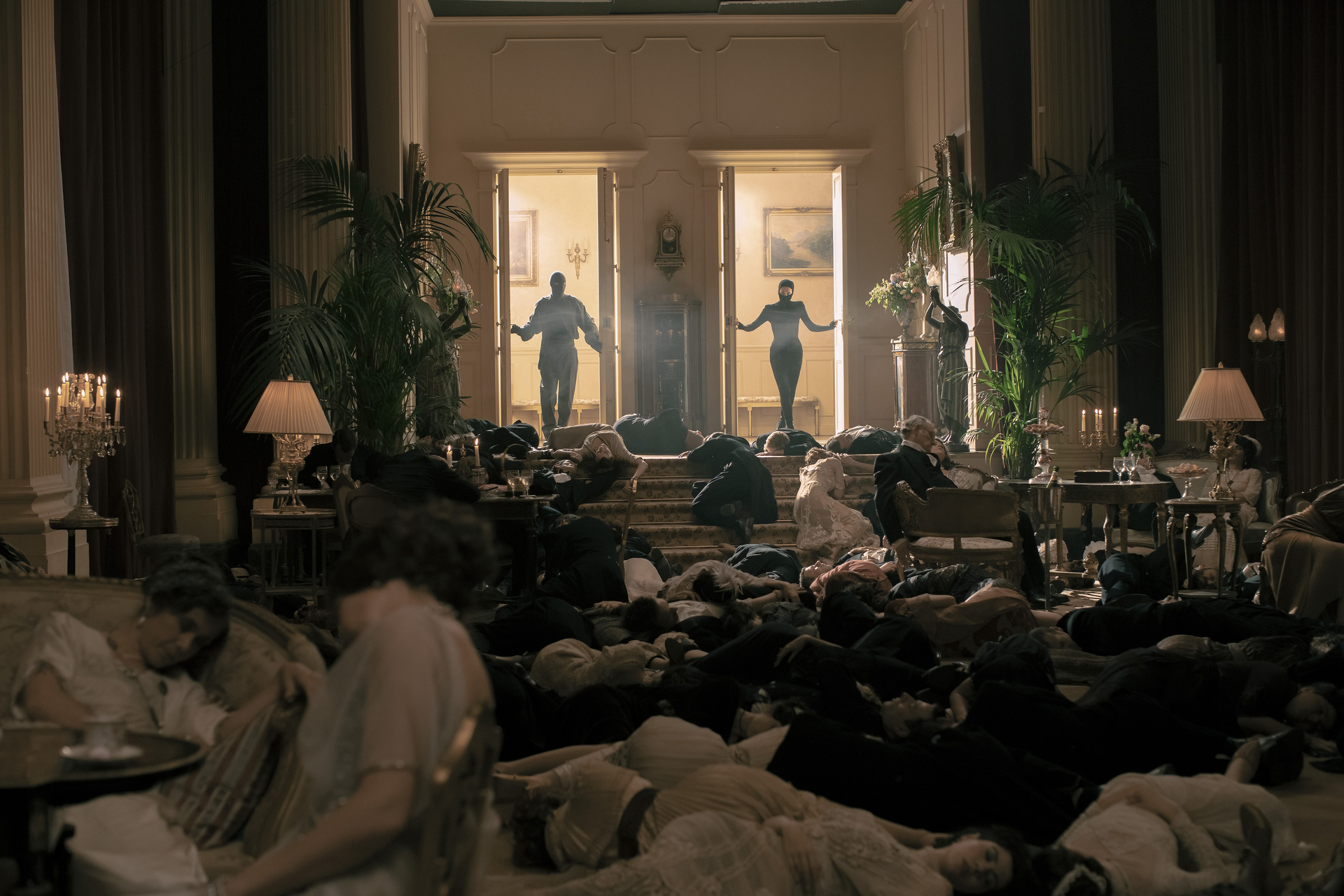
- Television
Alicia Vikander as HBO’s “Irma Vep”: an Arty Remake of a 1916 Masterpiece
There’s a scene in HBO’s Irma Vep in which Alicia Vikander slinks across the screen like a liquid shadow, elongating and diminishing against walls and corners. She’s dressed in a body-hugging silky-velvet suit, that an earlier scene explains is chosen for the manner in which the light catches the material – “more sensual than leather,” is the reasoning.
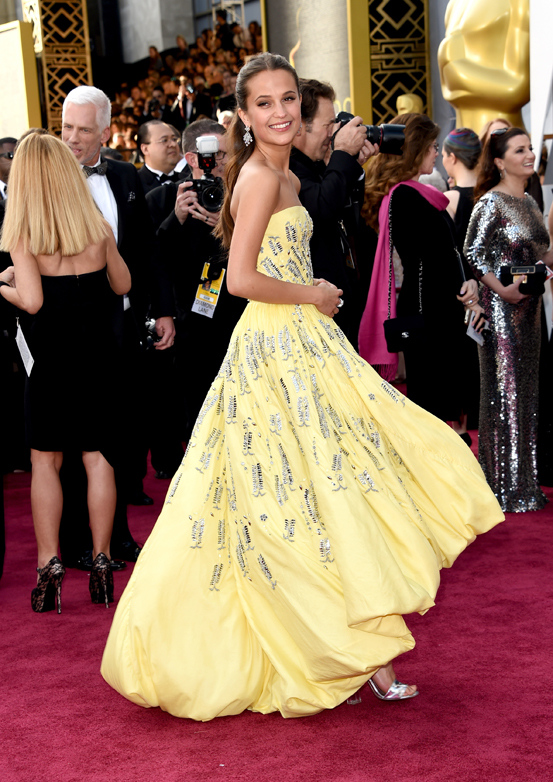
Irma Vep, is an eight-part TV mini-series about a modern American movie star, Mira (Vikander – The Danish Girl, Ex Machina) who risks losing her own identity while portraying the fictional character, Irma Vep, in an indie movie shot in Paris. The HBO series is based on a 1996 film of the same name, and includes numerous references to the vintage silent crime film series, which inspired it: Les Vampires.
Confused? Let’s unpack it.
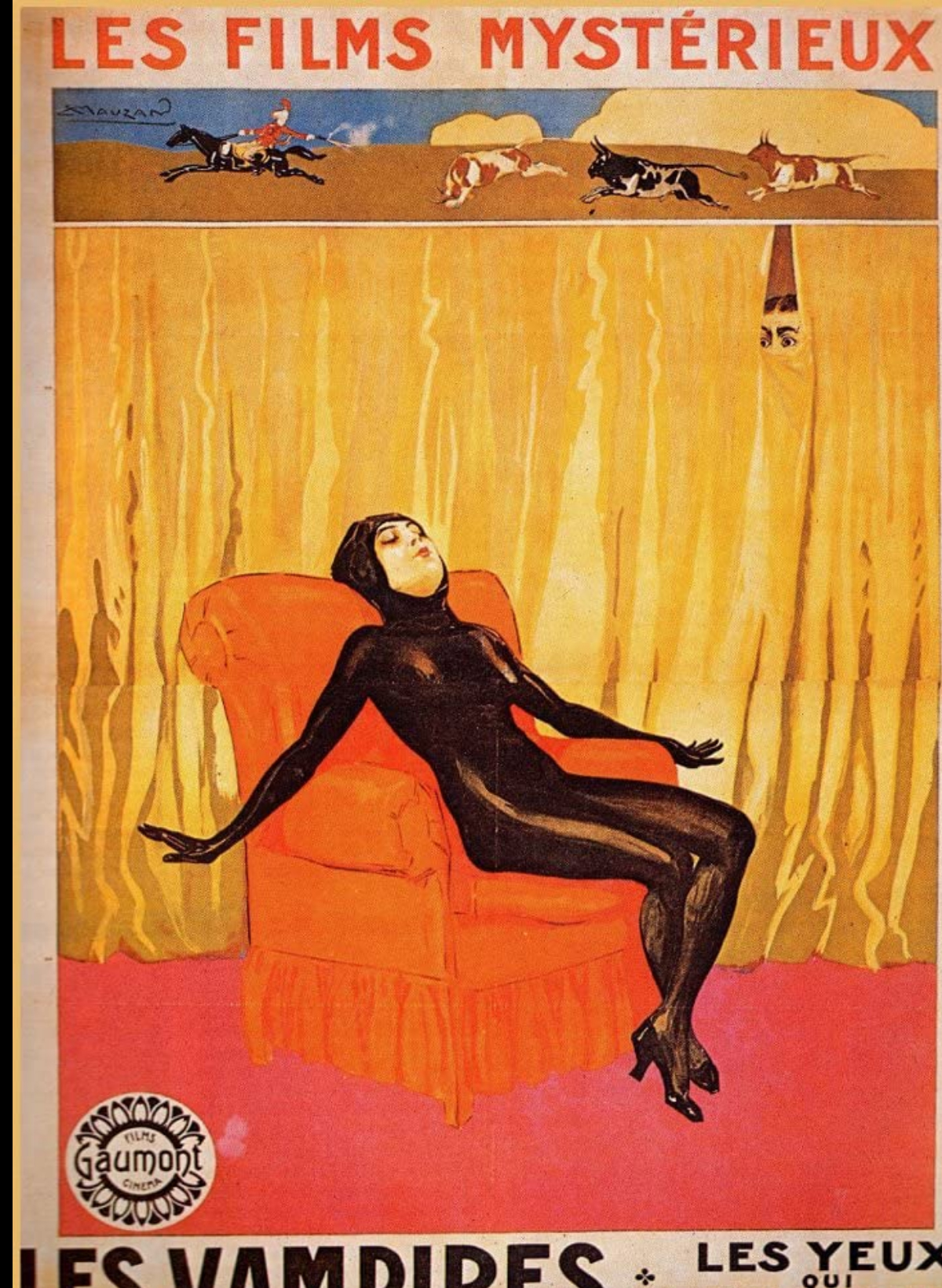
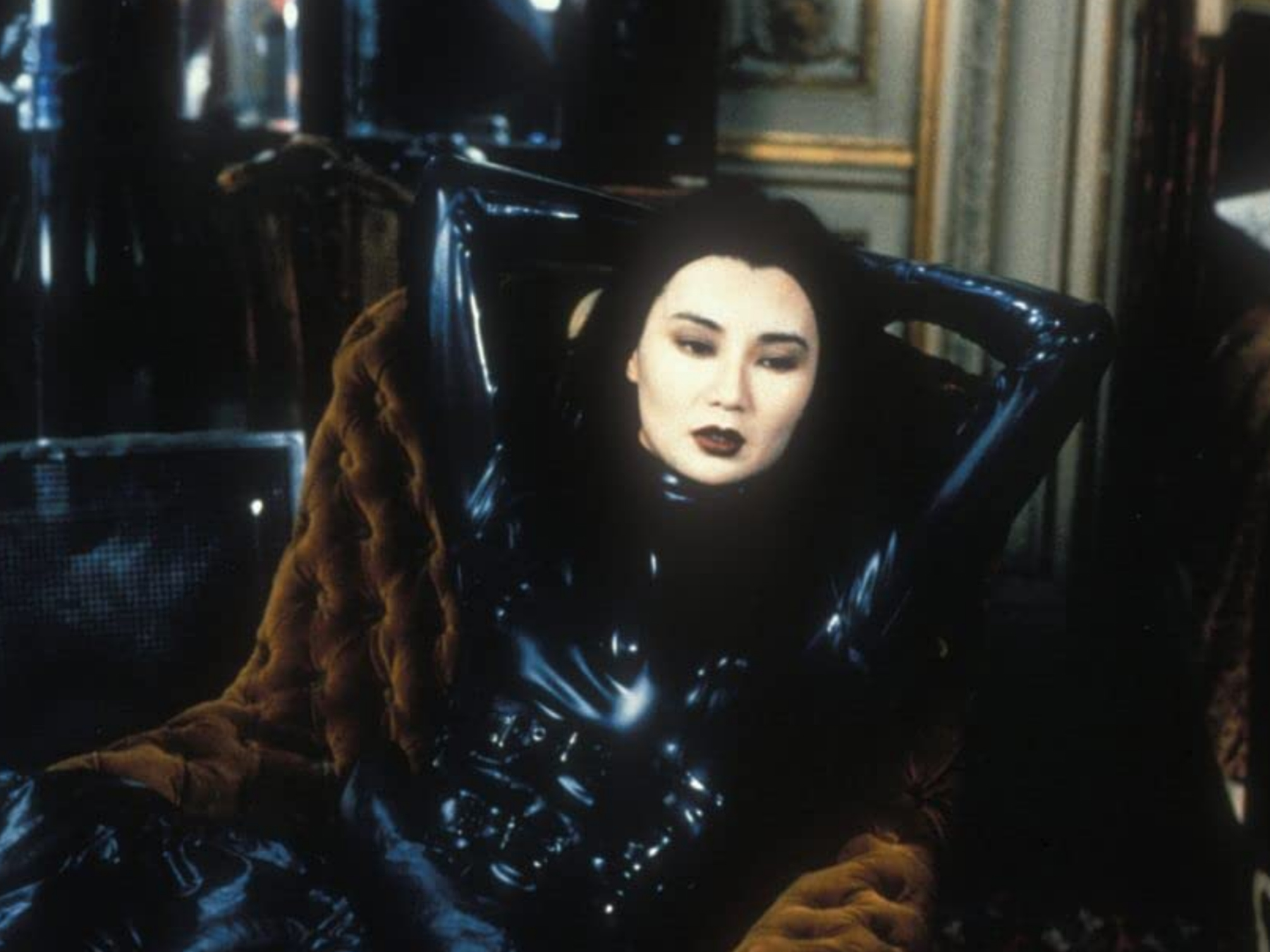
Caption: A poster for the 1915/1916 Les Vampires (l), which inspired the film Irma Vep (1996) starring Maggie Cheung (r).
Les Vampires (The Vampires), was a 1915-1916, ten-episode, silent era serial classic created by Louis Feuillade, that told the story of a gang of thieves, “the Vampires” (not to be confused with the long-incisored, blood-sucking creatures of myth and horror flicks), led by criminal mastermind Irma Vep. To view it is to understand the imprint that this masterpiece has left on film and television.
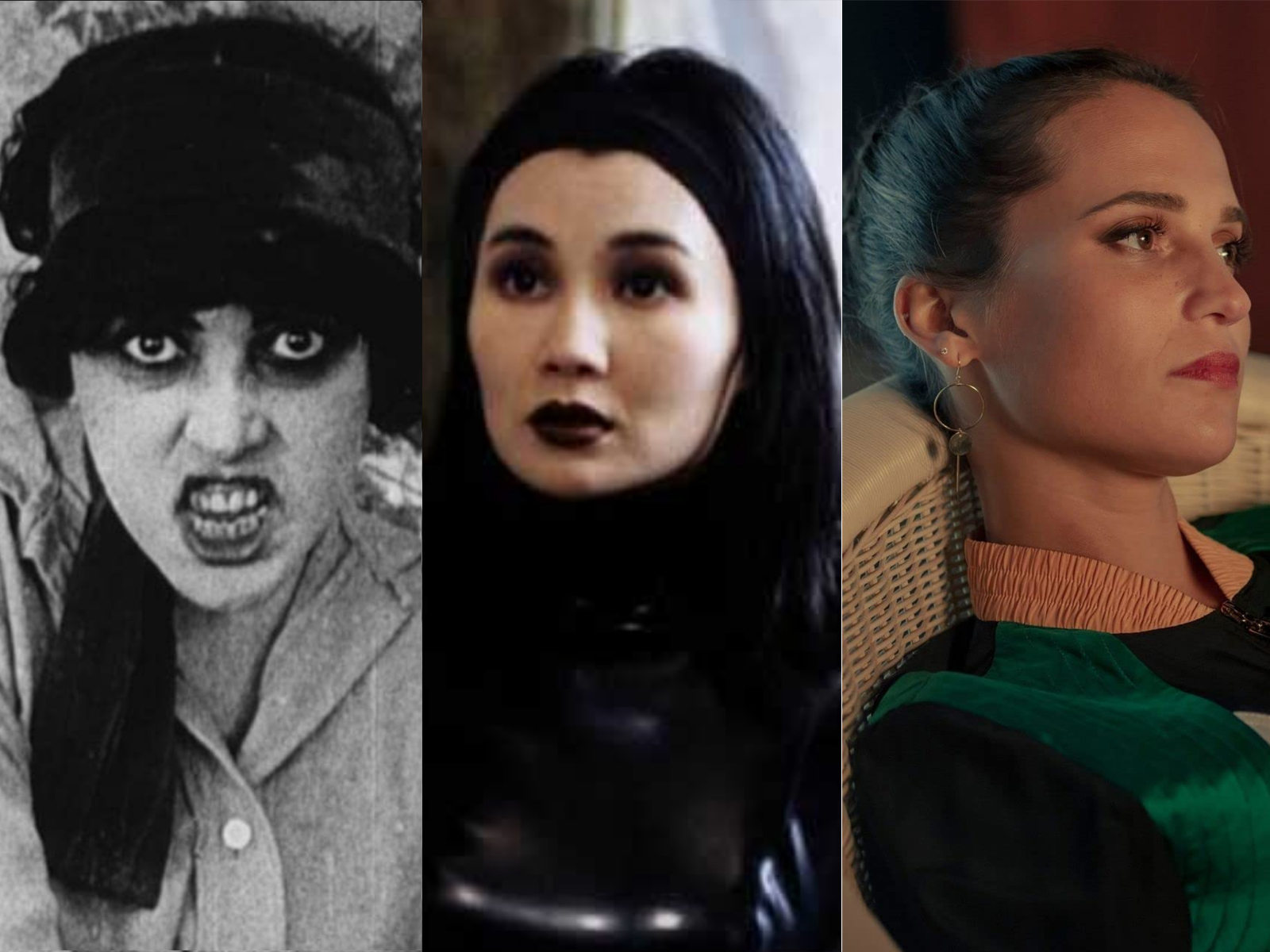
The HBO series is a loose remake of the 1996 French cult classic, Irma Vep, which in its turn is a film about the filming of the remake of Les Vampires, starring Hong Kong’s Maggie Cheung as an actress emotionally effected by her portrayal of Irma Vep during the reshoot. Directed by Olivier Assayas, it delves into the excesses of film creation and contains a sharp critique of cinema, and of the impossible balance of art, box office, commercial considerations and the pursuit of aesthetic vision. It also explores the artist’s sense of disconnect as he or she delves into character, and the potential danger it can do to the psyche.
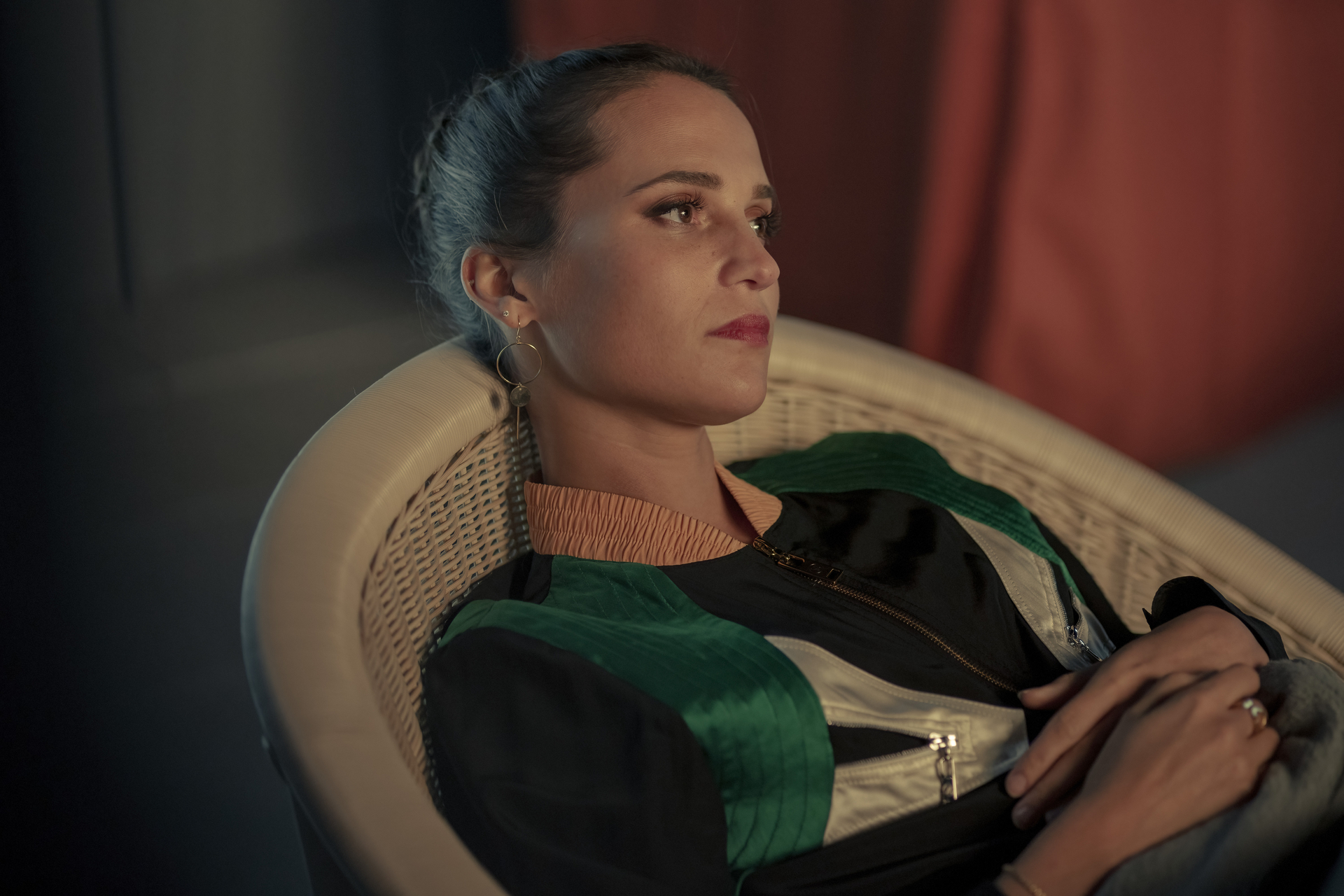
If that sounds too serious, the new series is also irreverent and filled with tart and gleefully inappropriate commentary, skewering both the commercial movie star’s need to be “taken seriously” and the serious artist’s thirst for box office payoff.
In the preview, a reporter’s politically incorrect query, “Are you gay?” prompts the even more inappropriate reply, “I was. I’m not anymore. I got bored with gay culture. They are all communists.” Say what?
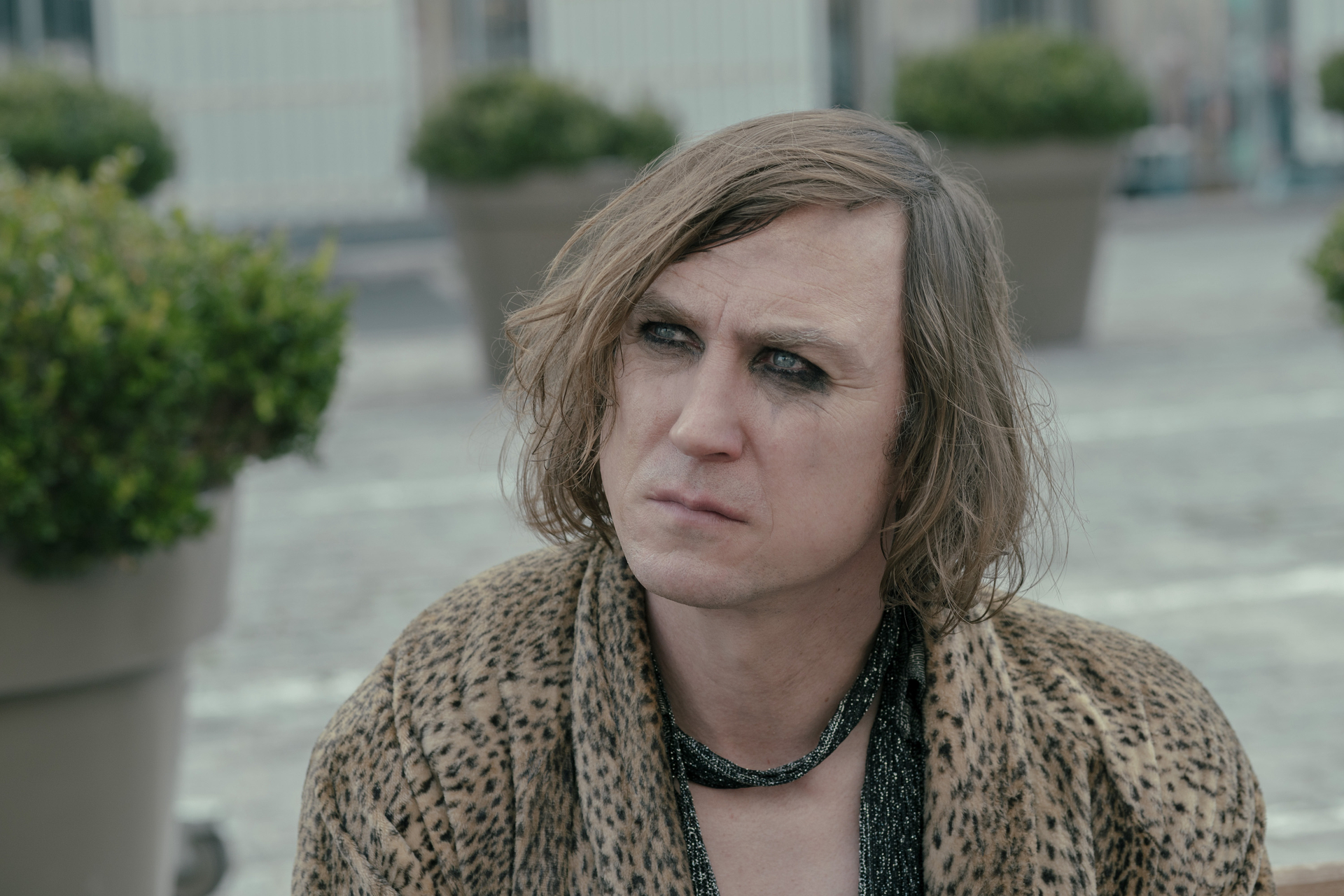
When Alicia Vikander’s Mira, says, “I don’t need a hit, I need a good movie. I’m so tired of being a superhero,” you wonder exactly how many in the Marvel Universe have uttered those same words.
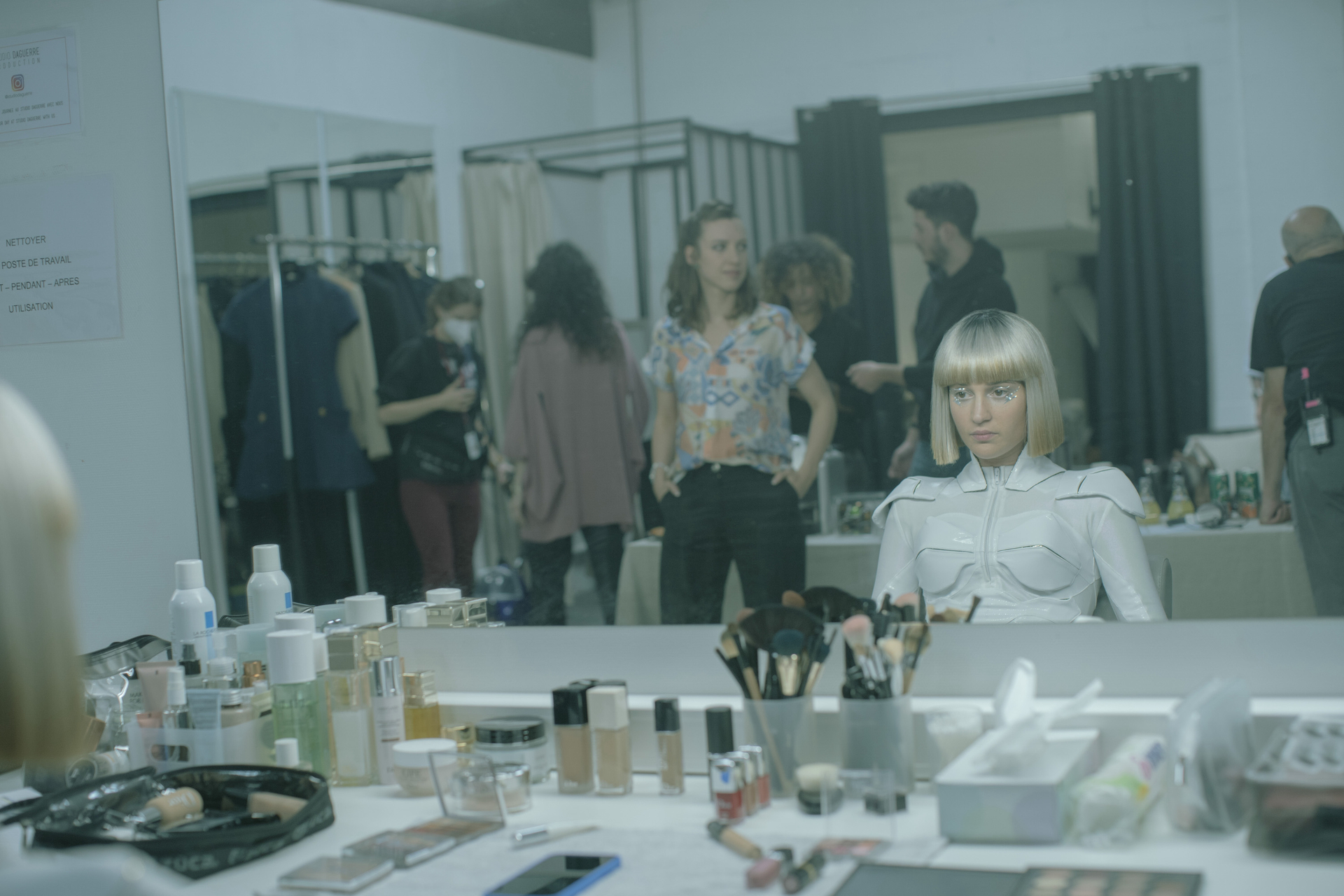
HBO’s Irma Vep does not require the pre-knowledge of its forerunners – the series stands alone as we follow a movie star in crises, trying to be seen as a serious actress, recovering from an inappropriate romance. It has all the classics of our current zeitgeist – gender fluidity, power/workplace abuse, as well as, more generally, the celebration of un-deserved celebrity.
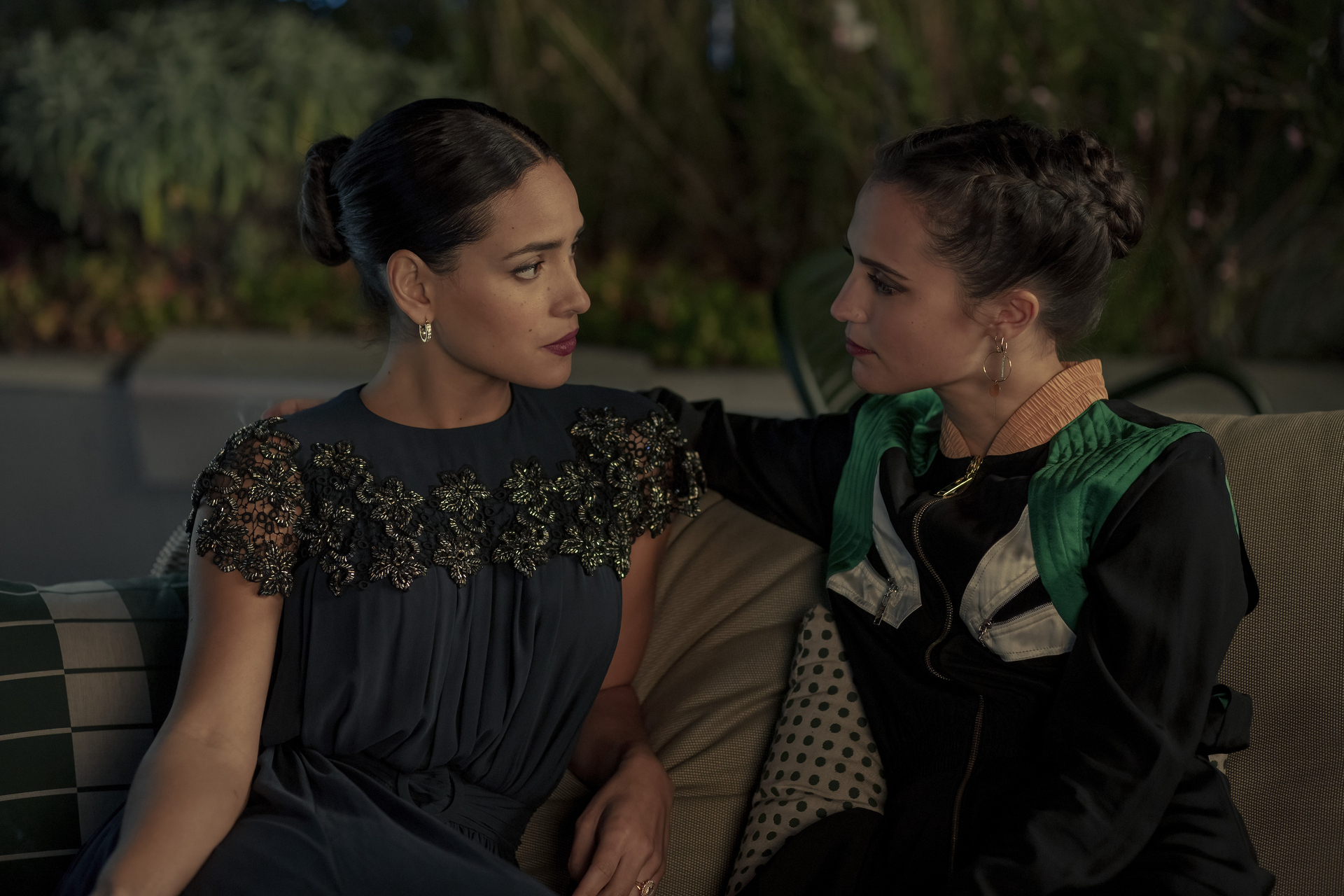
The series is full of inside references and part of the fun is figuring out who the real life inspirations of the characters might be.
The eight-part limited series was adapted from the original, written and directed by Oliver Assayas who, as already noted, had previously written and directed the 1996 version. Some have suggested that Mira is inspired by Kristen Stewart, with whom Assayas worked on Personal Shopper. He told the New York Times. “You can’t escape the fact that my experience of an American movie star is Kristen Stewart…. So yes, there must be elements of Kristen haunting the film.”
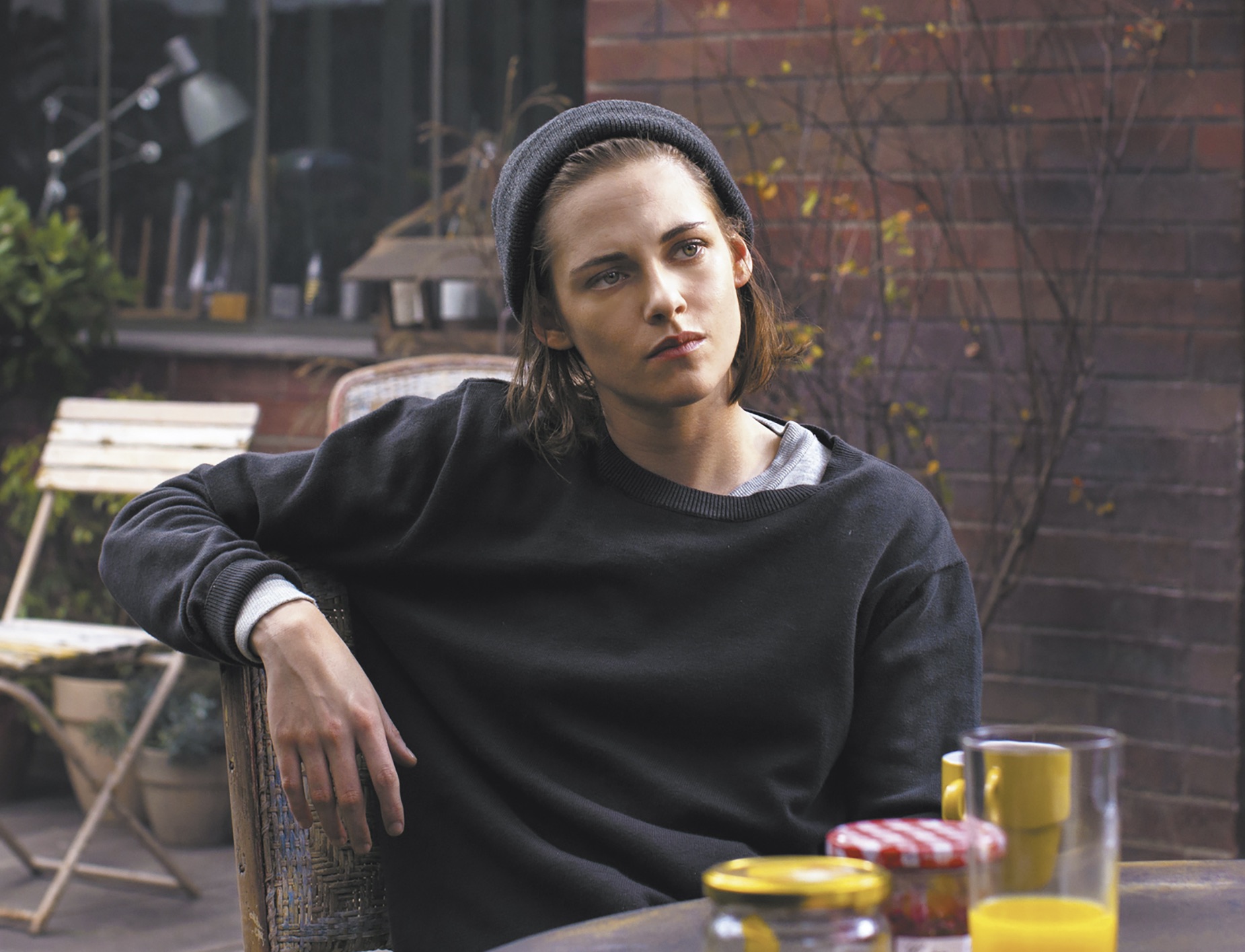
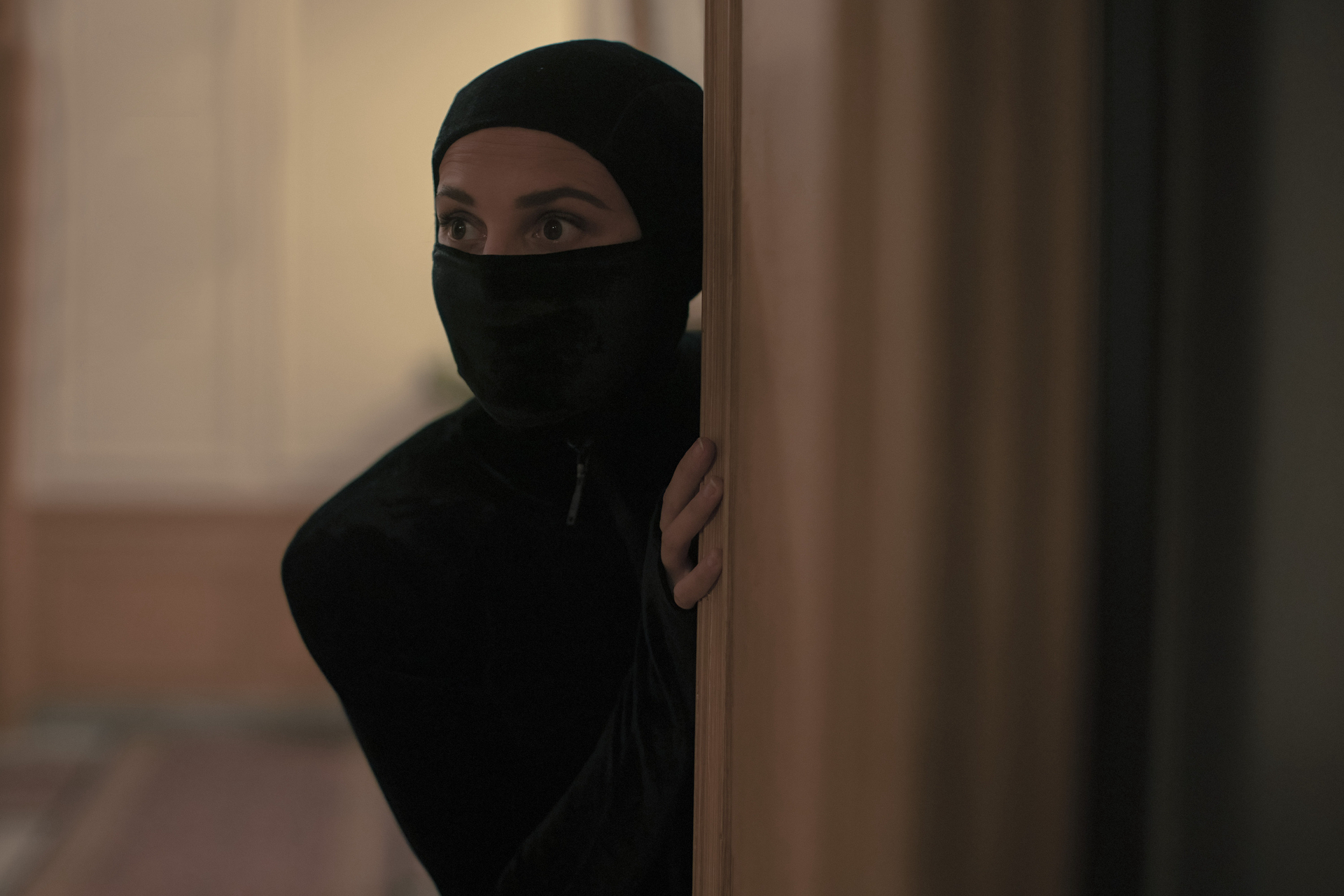
Kristen Stewart in Personal Shopper (l). Alicia Vikander in Irma Vep (r).
At the Cannes launch of the film, Olivier Assayas admitted to Insider that “I had no idea what I was getting myself into.” He added, “I don’t think much of what Hollywood has become. Irma Vep is about the chaos of contemporary cinema…. The problems of Hollywood (are) the financial structures that dictate how films are produced.”
Money, the power of it, the quest for it, the question who wields it, and the lack thereof, is a constant presence in the series. The quest for money guides morality. Do you answer an insurance adjustor honestly when it can jeopardize the making of your film by having the insurance yanked? Can a broken heart be healed by a designer shopping spree? What do you give up when you sign up for product endorsement? What limitations can investors place on the cast and story arc? Might, for instance, Louis Vuitton – or any vanity collaborator – ever make script demands that would be too outrageous? It stretches the imagination and demands an answer to the question: What do you give up in order to be a star? Irma Vep demonstrates the many unknown voices tugging at stars’ attention and the eternal battle of profit versus art.
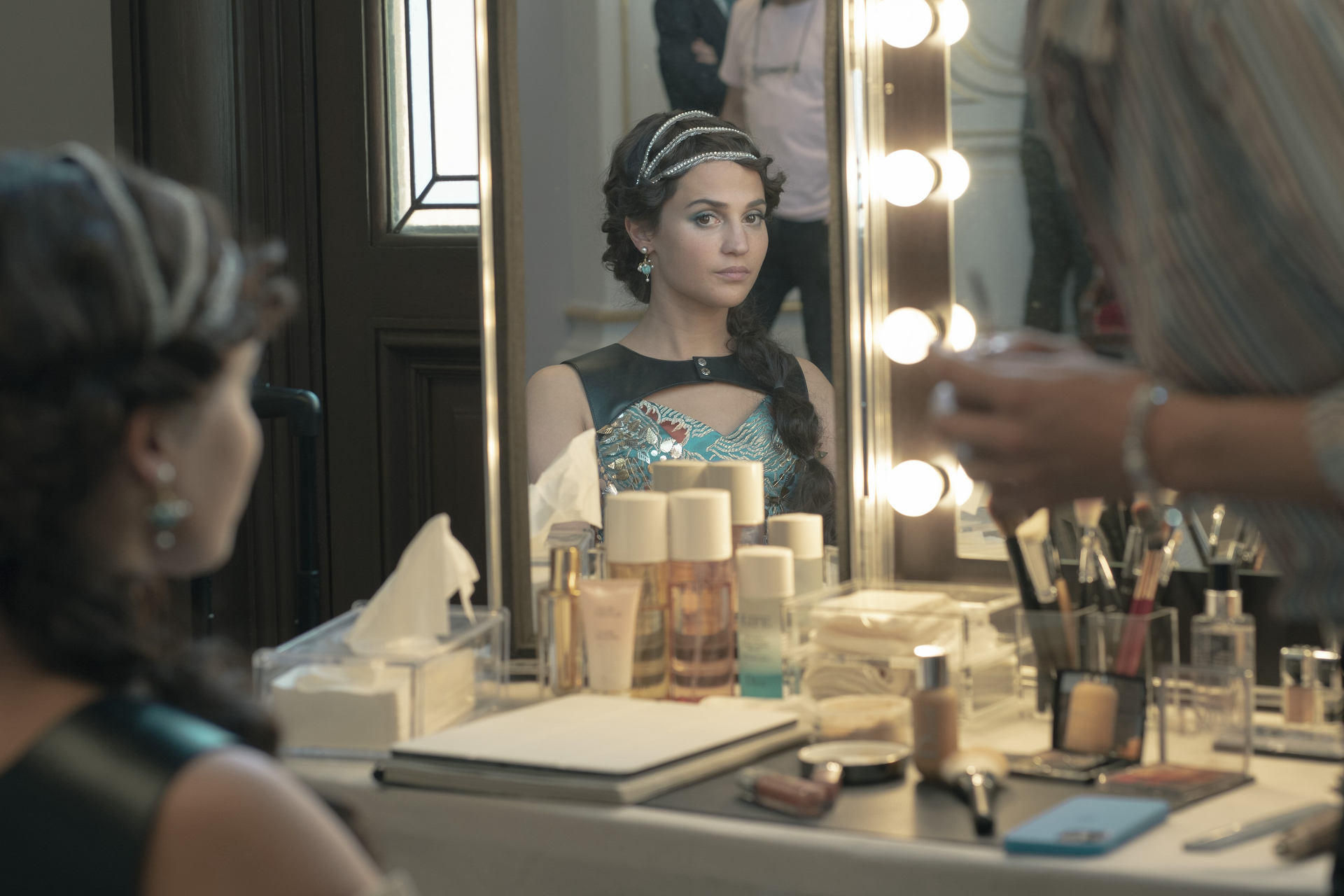
While most press commentary on the new Irma Vep focuses on the similarities and homages to its two inspirations, by so doing they fail to celebrate the dry humor, rapier assessment of the industry, or acknowledge the outrageous dialogue of the series. To focus on celebrating its predecessors is to overlook that Irma Vep stands alone while slyly incorporating the things that impacted from the 1916 Les Vampires (a lot of footage is included in this HBO series) while also incorporating Maggie Cheung’s Irma Vep.
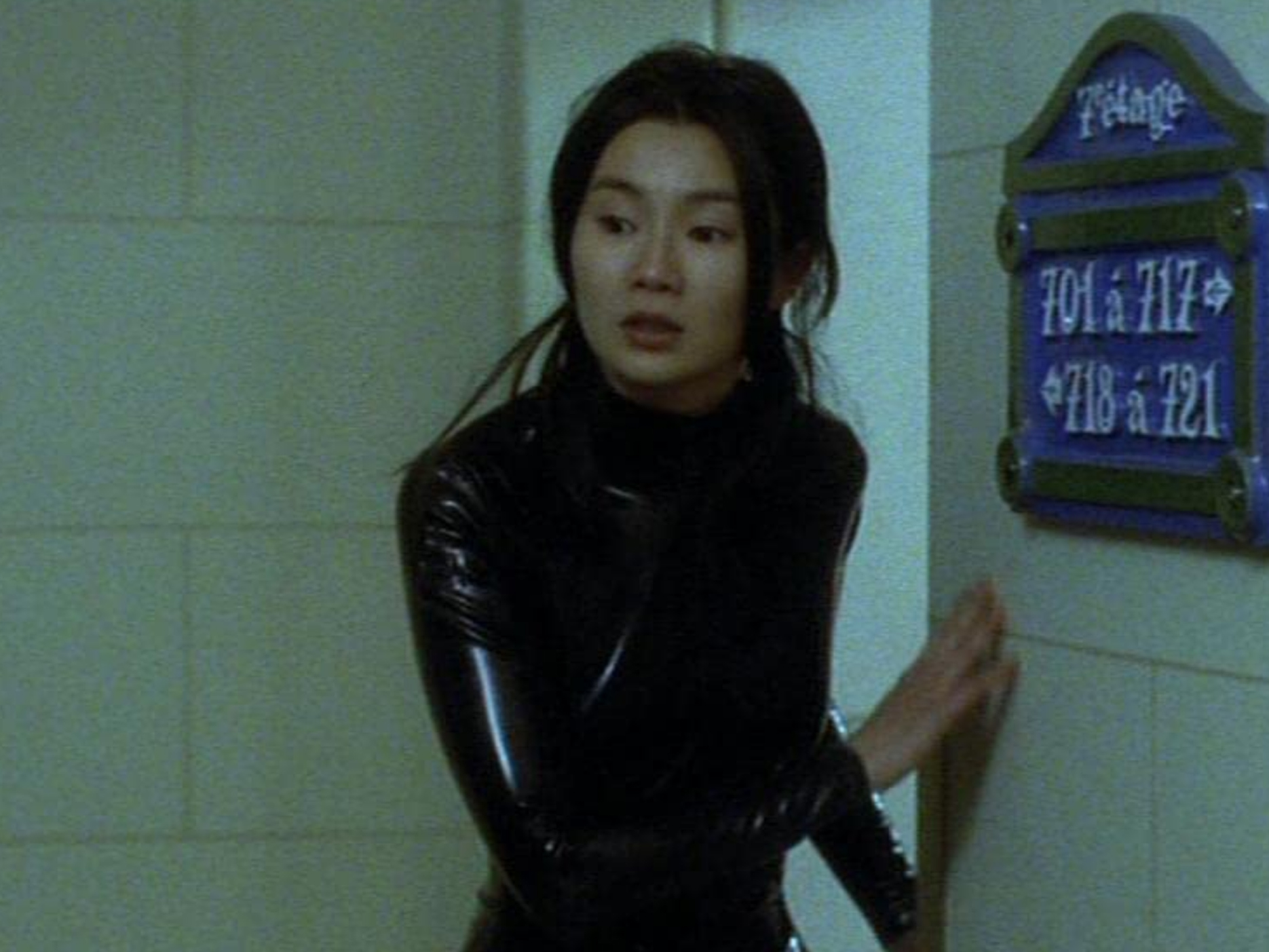
Some eyebrows might be raised by the fact that the female lead, Maggie Cheung, who is Asian, has been replaced by an “American” star – although that issue is addressed in the script, and Vikander herself is, in fact, Swedish. Maggie Cheung has left the industry and it should be mentioned that after starring in the original Irma Vep as herself, married and then divorced Assayas. According to The Playlist, Assayas asked for Maggie’s blessing for the new series and invited her to be part of it. She gave her good wishes, but passed on being involved.
Without a doubt this is a story within a story, to an almost incestuous level. Trying to unpack it is not for the faint-hearted, but it will appeal to the popcorn crowd. This is art and entertainment. You have to think. It may prompt you to go to Wikipedia to read up on The Vampires and Irma Vep. Or it may not. Simply go along for the ride, for there is enough there to keep you double blinking.
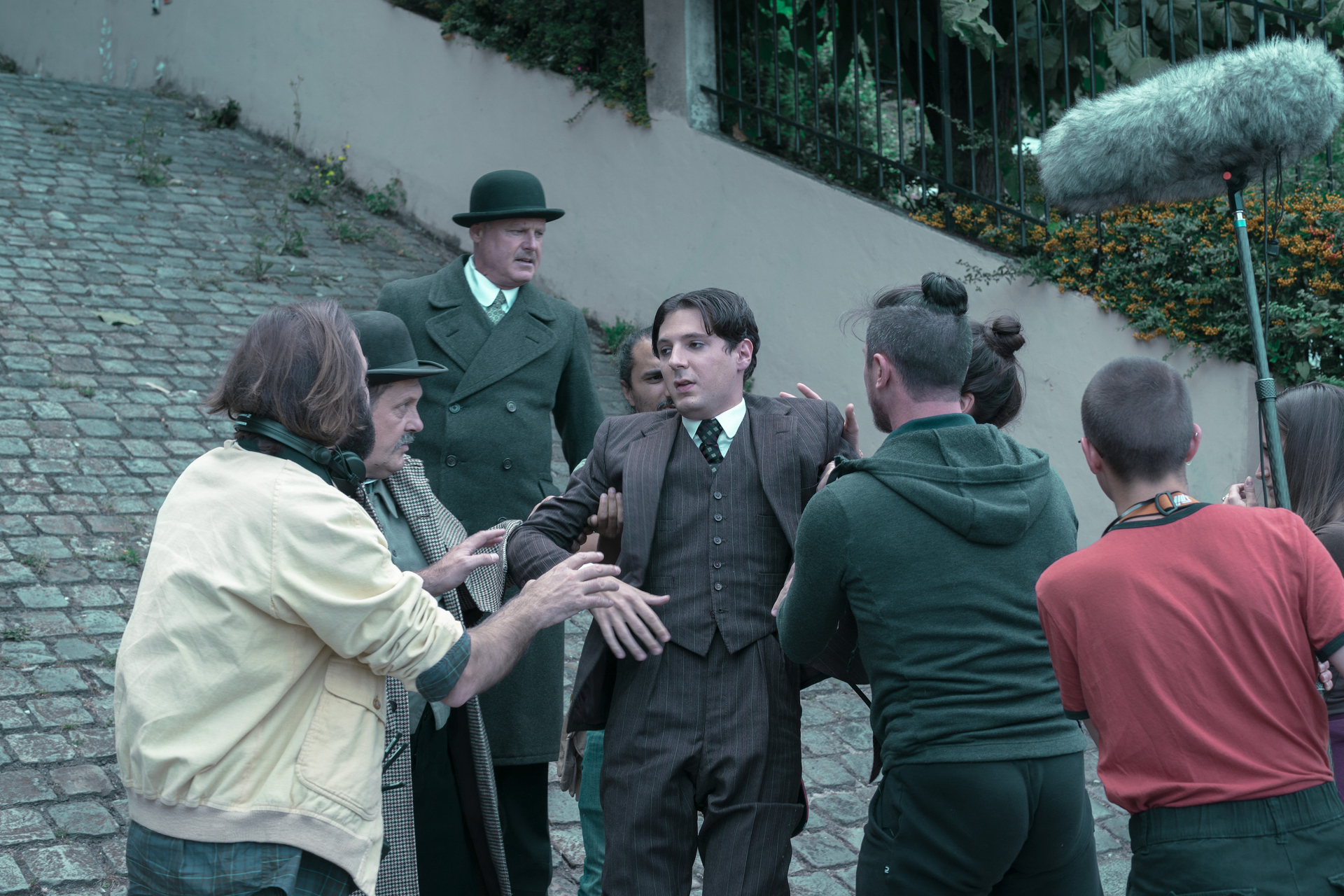
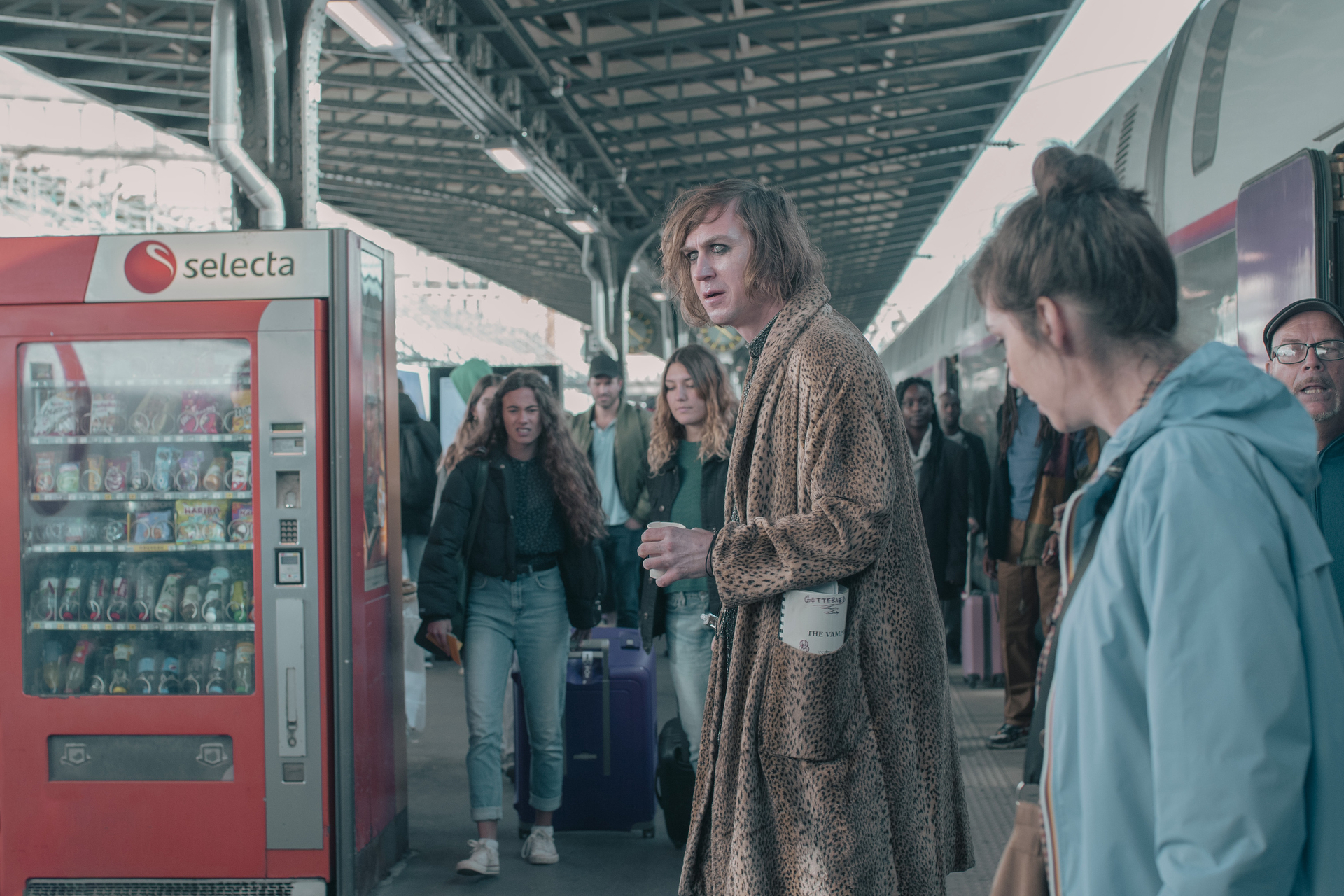
Vincent Locoste (l) an insecure co-star, Lars Eidinger (r) an unpredictable star that has a special kind of need in order to perform.
Vikander is Mira (an anagram for Irma) – surrounded by a cast of outrageous, insecure, manipulative characters. The public focuses on the end product; the film, the premiere, and idealizes those whom they regard as “stars,” often confusing the human actor with the character they portray. Amongst many things, Irma Vep pulls back the veil and reveals the messy, sordid realities behind the glamour, showing us – as we have recently seen in the private lives of Depp/Heard – that the reality is far from the myth.
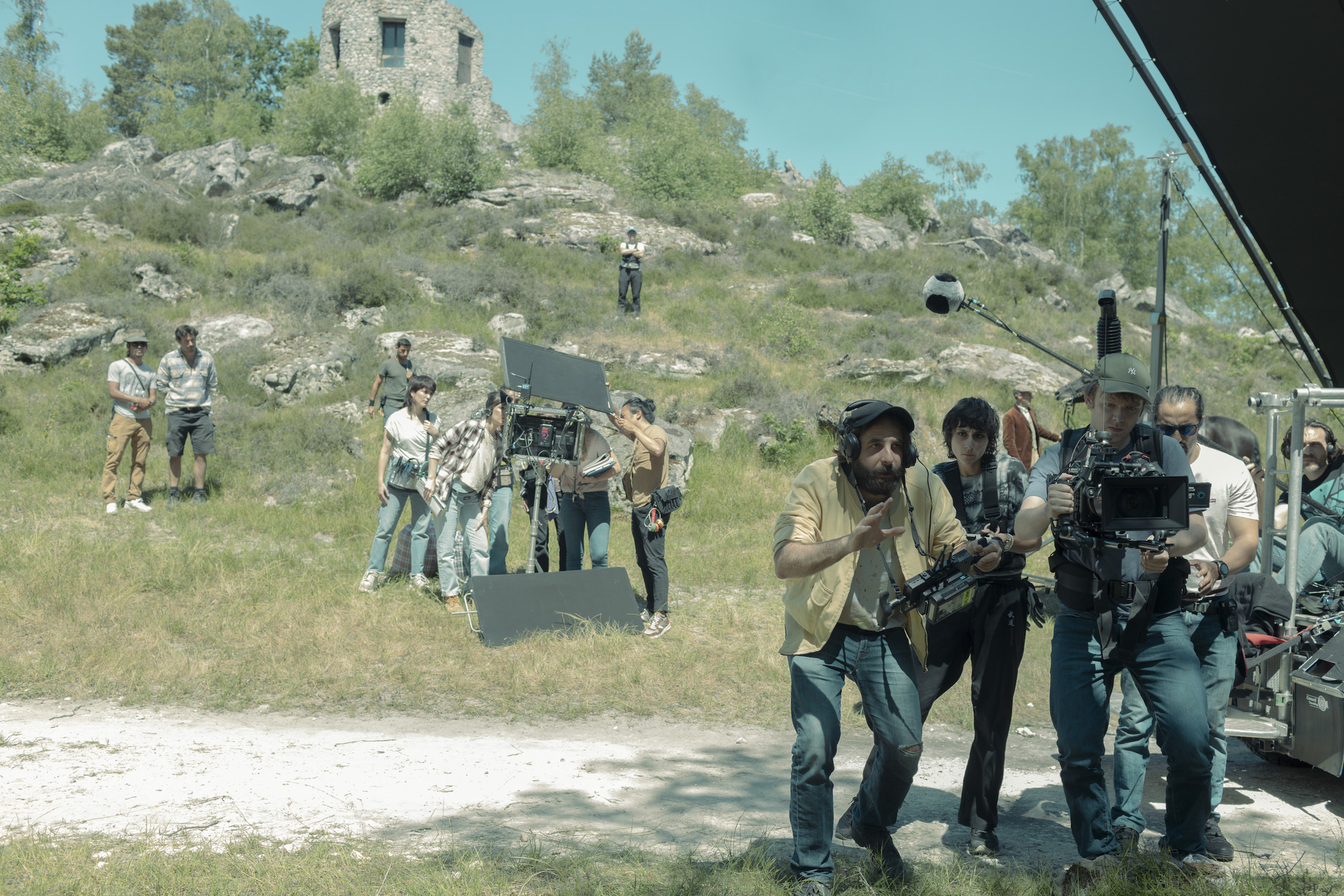
It also exposes the tenuous nature of the miracle of film making and the many obstacles that can derail any production. A director (Vincent Macaigne as René Vidal) who has lost his passion. Actors whose vanity demands reveal fragile egos and run up costs.
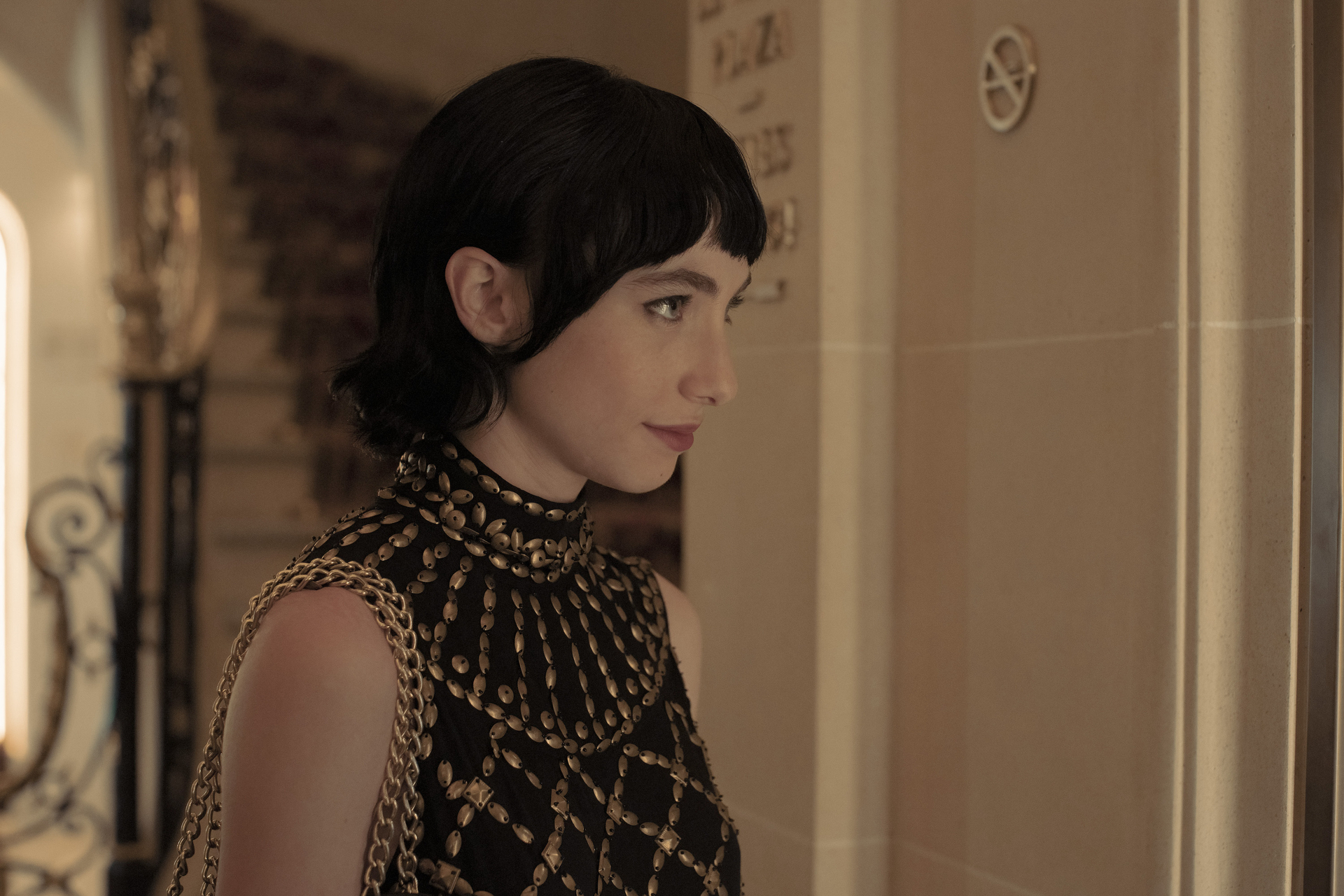
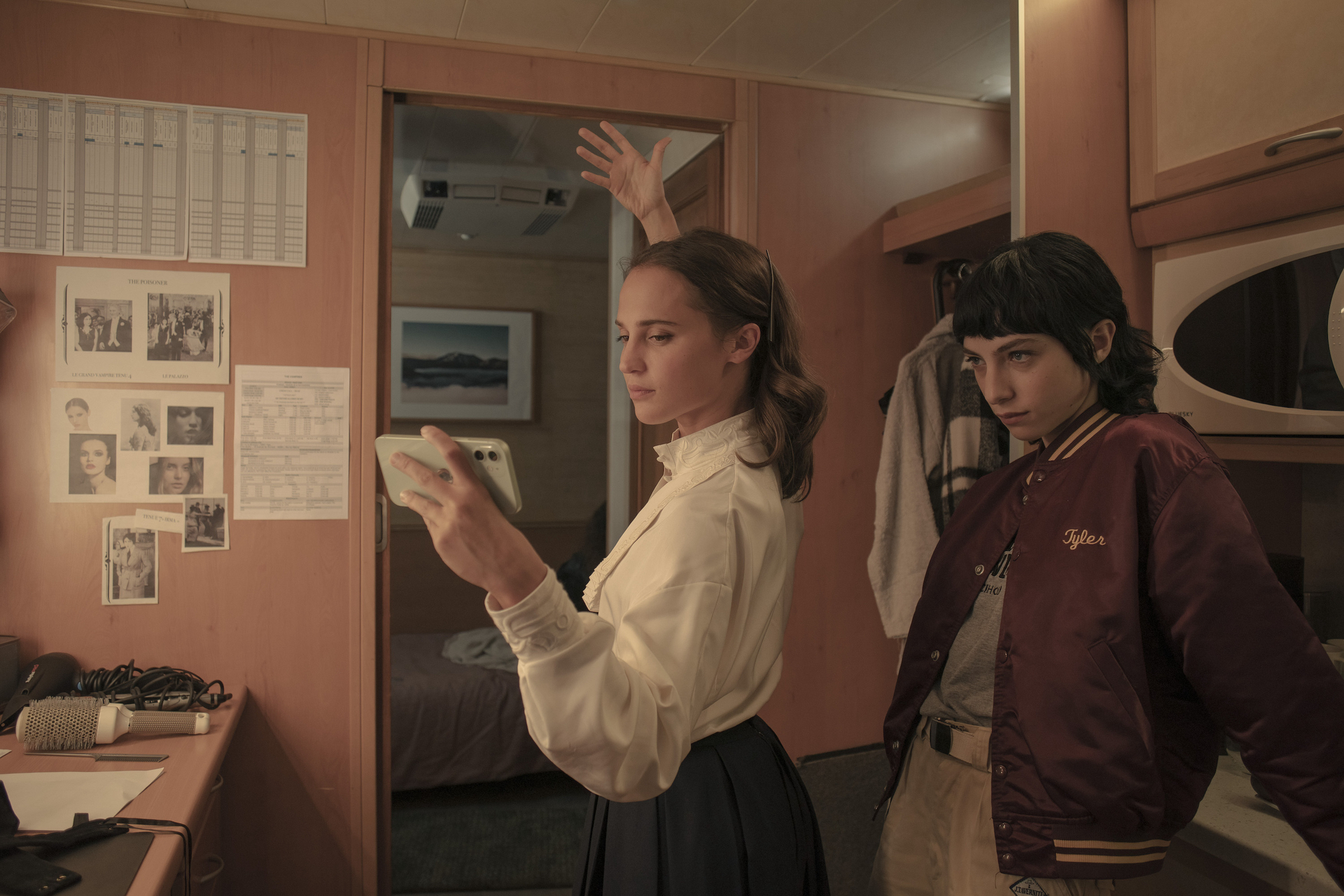
Devon Ross is Vikander’s personal assistant – a role that requires trust – and is rife for exploitation.
Personal assistants (Devon Ross as Regina) with personal agendas and the leveraging of a star for funding, so that when an insecure Vikander seeks a boost to her self-confidence for being cast in an auteur’s film, the director’s reply is, something like, “You glow. The camera loves you.” It’s understandable that the star loses her grip on who she is as the line blurs between the person she really is and the character she portrays.
Mira takes on Irma because her work lacks gravitas. What the series shows is that gravitas may be overrated.

